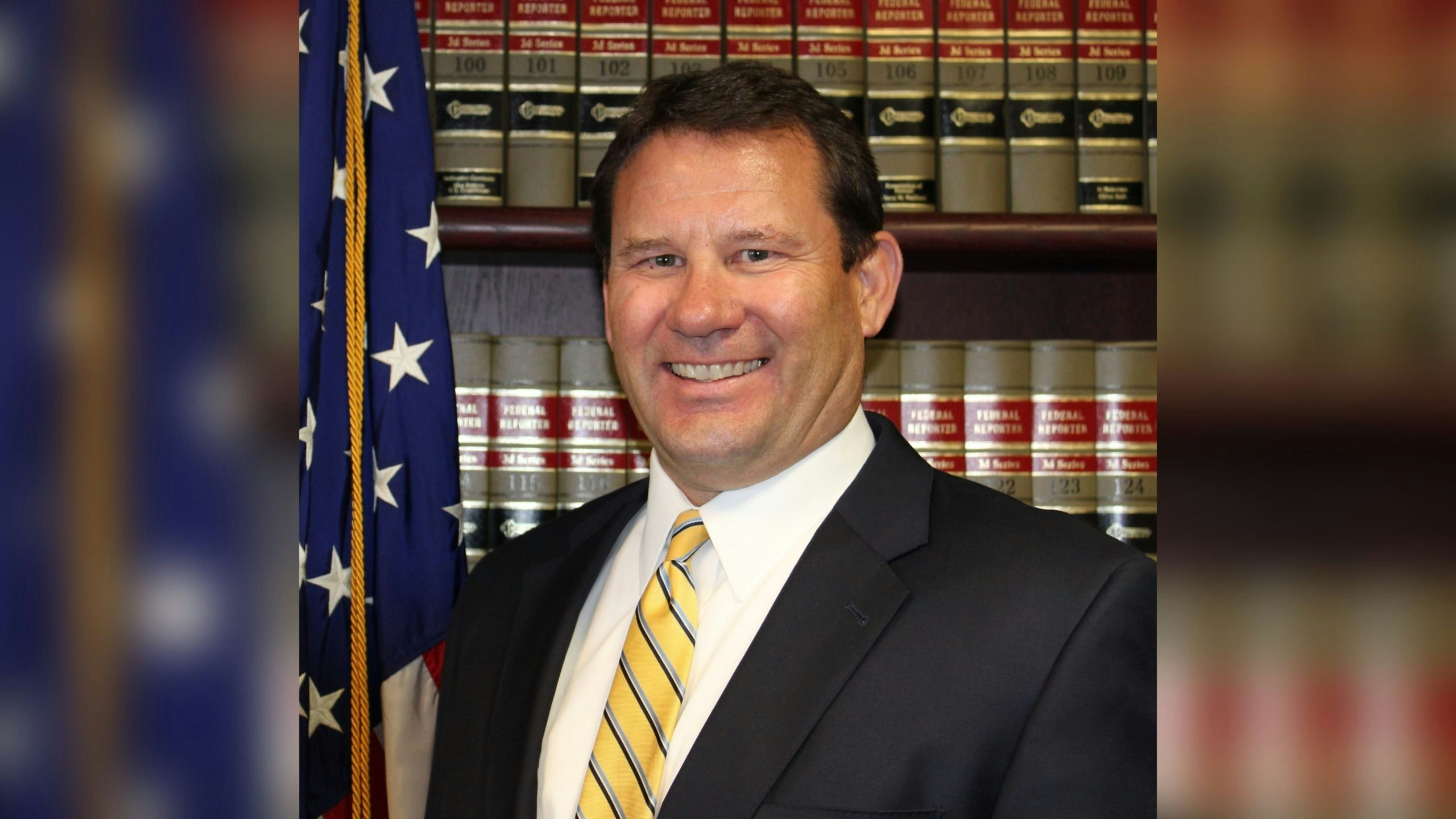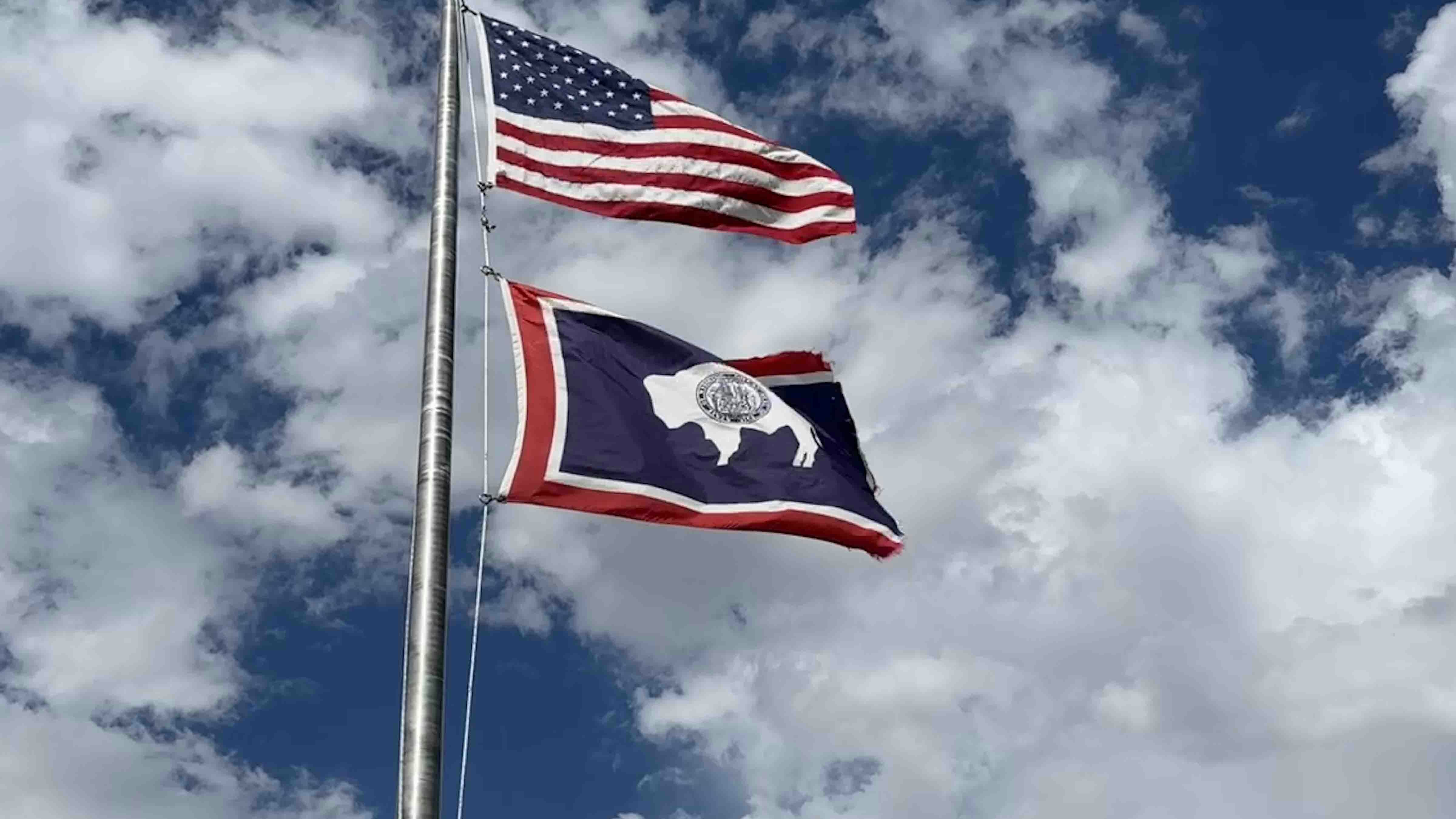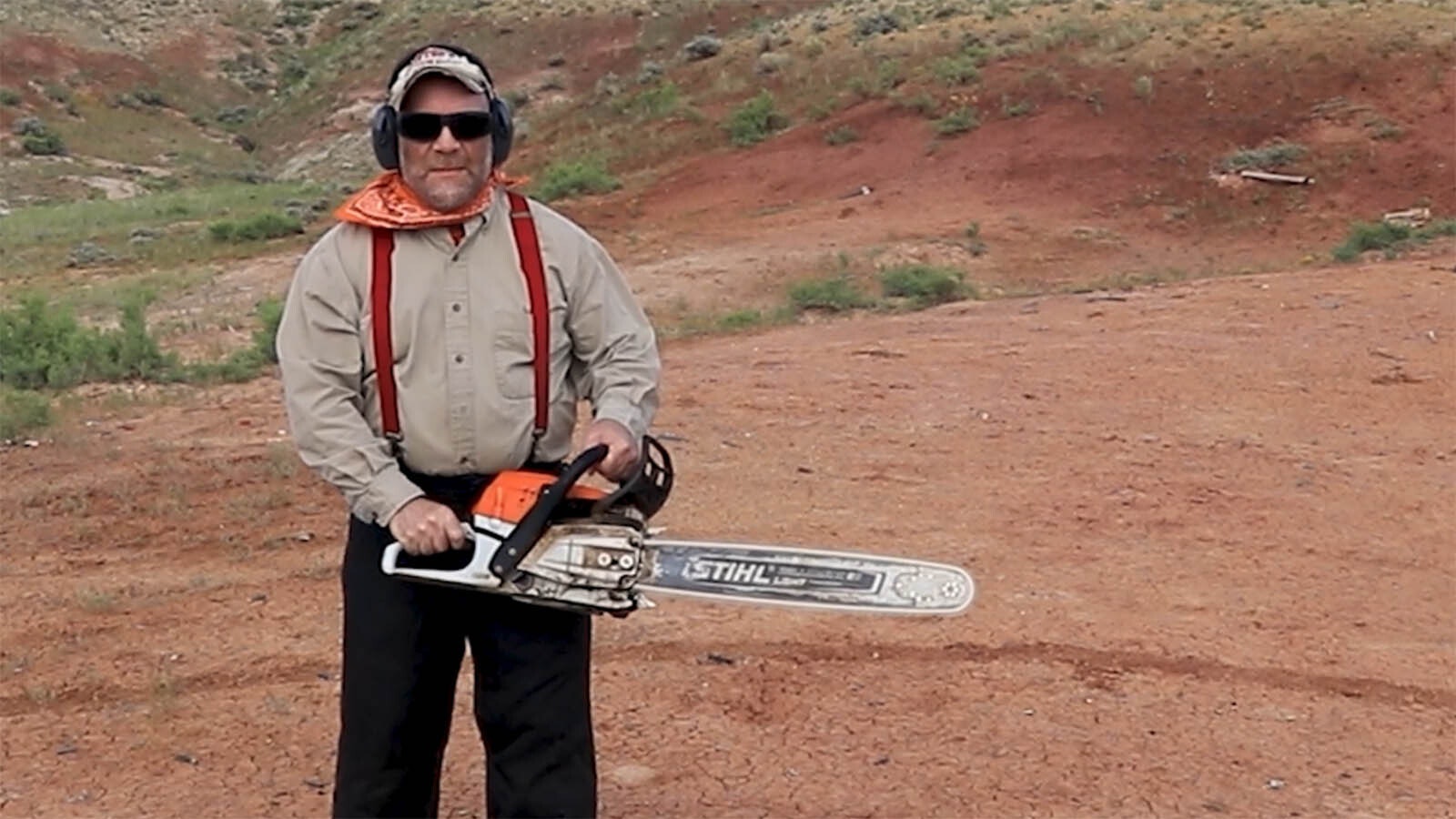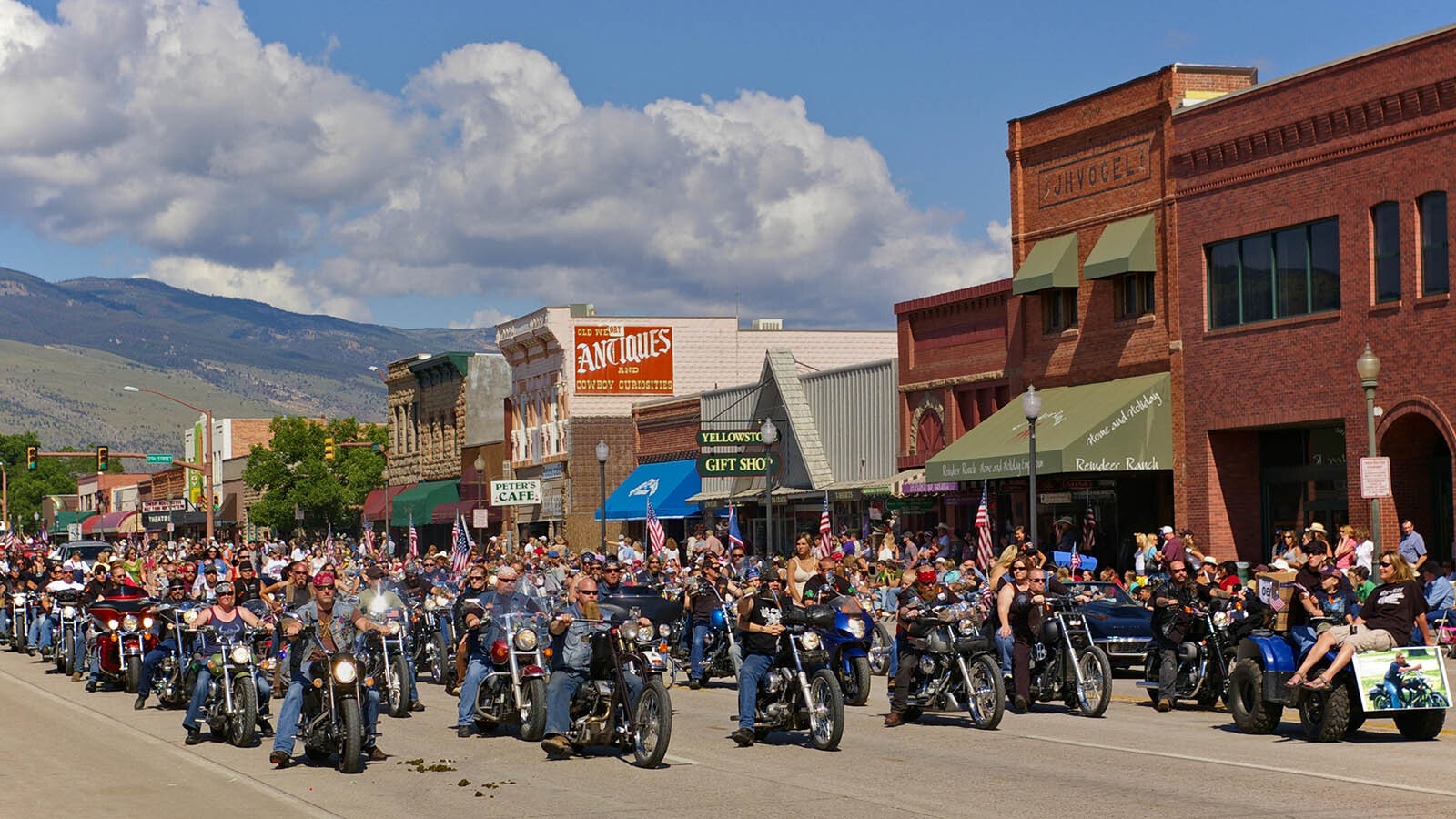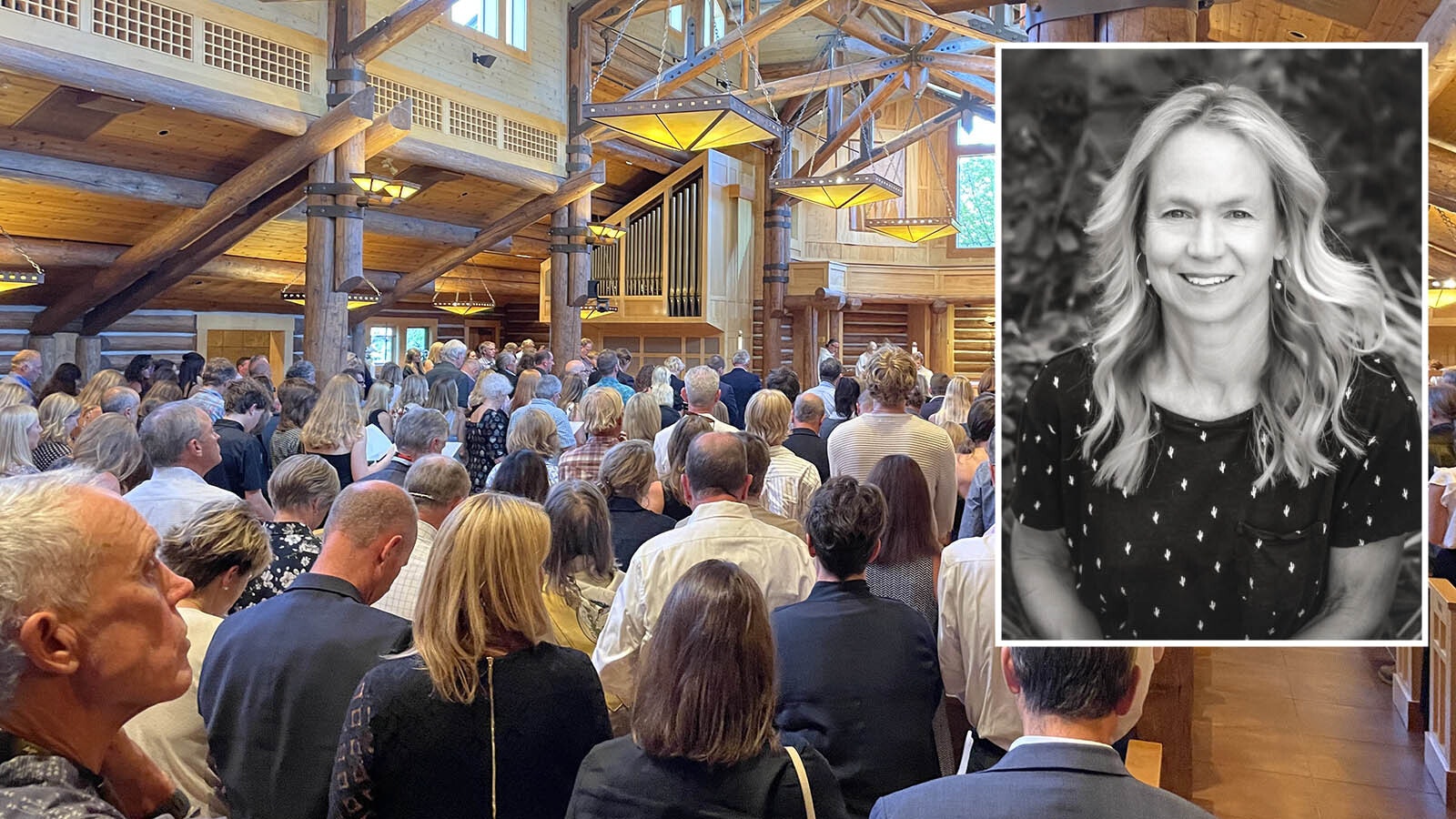By Wendy Corr, Cowboy State Daily
Bob Murray has always lived his life in two worlds.
As a Native American (Murray is a registered member of the Eastern Shoshone tribe), his heritage heavily influenced his younger years. But he took an unusual career path. He chose to follow a life that would seem light years away from the Wind River Indian Reservation – but which instead bound him to its people as their legal representative.
Murray served as the United States Attorney for Wyoming until his retirement in June of this year.
From the Reservation to the Halls of Justice
Murray’s heritage is mixed – his father is Native American, while his mother is Irish.
“I always kind of joke and say that I’m a member of the light skinned band of the Eastern Shoshone,” Murray said. “I am a ‘breed’ – my mom’s Irish and my dad was Eastern Shoshone.”
He said his parents’ meeting was actually in a historically controversial setting.
“You hear a lot about this right now, because the Pope just apologized for it, but my dad was sent to Catholic boarding school in Chadron, Nebraska,” Murray said. “But it’s funny because, that was all supposed to be forced assimilation, to where you send these young Indian kids off the reservation to go to these government boarding schools, and they assimilate into to white culture, the white society.”
But he said that’s not what happened with his parents.
“My dad did his entire schooling in Chadron, Nebraska, met this blond haired, blue eyed Irish gal, my mom, and married her and brought her back to the reservation and raised a bunch of ‘breeds.’”
Murray said his early years were spent ranching on the Wind River Indian Reservation. He attended elementary school at Wind River in Pavilion, and graduated from high school in Lander.
Murray told Cowboy State Daily that he couldn’t pinpoint why, exactly, law school appealed to him.
“It could have been that I read too many Gerry Spence books growing up,” Murray said, with a nod towards the famous Jackson attorney. “I was always kind of fascinated with trials and trial lawyers. And so I had a goal, early on in high school, to ultimately one day become an attorney.”
Murray acknowledged that, given his background as a young Native American, a career as an attorney was, in his words, a “long shot.” According to the American Bar Association, less than ½ of 1% of all lawyers are Native American.
But he took a chance, and moved to Denver with his high school sweetheart, Sandy.
“My wife Sandy is a CPA,” Murray said, “and after undergrad I applied to University of Denver, Sturm College of Law, and they took me in.”
After acquiring his law degree from the University of Denver in 1990, Murray found himself working in one of the largest law firms in Denver.
“This is a crazy thing for a kid from ‘the rez,’ in that my very first job was on 17th Street in Denver,” he said, speaking of his work with the law firm Holland and Hart. “At the time (it was), and it could still be, the largest law firm in the Rocky Mountains.”
Murray said his position at Holland and Hart both inspired him and shaped his career going forward.
“I started with a big firm, which is something that, looking back now, taught me how to be a lawyer those first few years out of law school,” he said. “Landing with a good law office and having good lawyers to learn from is just absolutely critical to establishing a good law practice.”
Murray’s first job was as a litigator for Holland and Hart, working on environmental cases involving the oil and gas industry. But he was soon called home.
Back On the Reservation
“I actually came back home to work,” Murray said. “I worked for my tribe for about a year and a half, around 1984-1985. I was in-house counsel with John Schumacher, and we represented the Eastern Shoshone Tribe.”
While working on behalf of the tribe, Murray said he became acutely aware of a flaw in the justice system.
“The people on the reservation – the people who are being prosecuted or the people who are being represented, the general public on the reservation – do not have a say in who their prosecutor is, as everybody else does,” he said. “They can’t vote for them.”
Murray began advocating with then-U.S. Attorney for Wyoming, Dave Freudenthal, to establish a U.S. Attorney’s Office branch in Lander.
“The United States Attorney essentially acts as the district attorney or county attorney for the reservation for all the major crimes,” Murray pointed out. But unlike other county attorneys, who live and work in their local communities, a U.S. Attorney rarely has direct connections to the tribal communities he or she may serve.
“And so talking to Dave Freudenthal, he agreed that the best thing to do to establish good relationships with the tribes is to try to be as close to being a district attorney or county attorney as you can,” Murray said. “And he opened up a Lander office.”
Murray is strong in his belief that the current system of justice on Native American reservations is simply wrong.
“Because of the Indian Major Crimes Act (enacted in 1885), Congress has essentially said that Native Americans can’t police themselves, so the United States has to do this,” he said. “It’s over a century-year-old law that establishes that jurisdiction, and I just think it’s wrong. But, it’s the law that is in place now.”
Freudenthal’s interaction with Murray during his tenure as in-house counsel for the tribe led to a job offer.
“At the time, it was really a difficult decision for me to make,” Murray said. “I had come back home to the reservation and had been working with the tribe, but I hadn’t fulfilled my goal of becoming a real trial lawyer.”
As in-house counsel, Murray said he didn’t try cases in court, but instead acted in an advisory position.
“To be a trial lawyer, there’s no better place than in the United States Attorney’s Office,” he said. “So that’s why I left to go to Cheyenne.”
Theft Rings and Cartels
Murray said that when Dave Freudenthal hired him to work in the U.S. Attorney’s Office in Cheyenne, his skills lent themselves to prosecuting criminal organizations.
“And so, my entire career (in the U.S. Attorney’s Office), up until I became the criminal chief, all I did was investigate and prosecute criminal organizations,” he said. “Whether they be drug organizations, theft rings, financial fraud – that was really my go-to.”
Murray said prosecuting criminals with ties to the Sinaloa Cartel was a highlight of his career.
“I was involved in the prosecution of an arm of the Sinaloa Cartel that had established distribution points near Indian reservations,” he said, referring to a drug trafficking and organized crime syndicate based in Mexico that is considered by the United States intelligence community to be perhaps the most dangerous drug cartel operating in the world.
“We were investigating this group for off-reservation conduct in the district of Wyoming,” he said. “And it led us to the reservation, to where we developed this case and investigated it, and learned what was going on.”
Murray said the defendant in the case was Jesus Martin Sagaste-Cruz, who according to news reports from 2007, had moved his drug gang to the reservation in the early 2000s, heavily impacting the tribal population. According to an Associated Press report from 2007, cases of child neglect, drug possession and spousal abuse on the reservation increased dramatically from 2003 to 2006 as a direct result of Sagaste-Cruz’s operation.
“The Sagaste-Cruz case, it had a huge impact on the reservation,” Murray said.
Full Circle
It was after he became Criminal Chief in the U.S. Attorney’s Office in 2014 that Murray found himself working once again with the tribes on the Wind River Reservation.
“I began to supervise all of the Indian Country cases that we hadn’t investigated and prosecuted,” Murray said, “and I really did start to become involved in that role as a ‘county attorney.’”
Murray said he enjoyed good relationships with the councils for both the Eastern Shoshone and Northern Arapahoe tribes on the Wind River Reservation.
“Even when I was the in-house attorney for the Shoshone tribe, I had a good relationship with the Arapahoe Business Council,” he said, “which you had to, to effectively represent both tribes and the reservation as a whole.”
As he moved up in the ranks in the U.S. Attorney’s Office, Murray led teams from the office to the reservation at least four times per year to facilitate communication with tribal leaders.
“If there were issues that tribes had, they freely brought those to my attention,” he said. “But it’s a difficult role to play, and criminal law enforcement is kind of a messy part of life. But it seemed that they appreciated that the U.S. Attorney’s Office frequently came up and sat down with them in kind of a government to government role.”
Once Attorney General Merrick B. Garland appointed Murray as the United States Attorney for Wyoming on November 28, 2021, he took on full authority and jurisdiction over decisions and prosecutions of crime on the reservation.
“That’s about as close as any reservation would come to having a true tribal member as a county district prosecutor,” Murray said.
Heritage Made an Effective Prosecutor
“Growing up on the reservation, there’s no better place to grow up, if you want my personal opinion,” Murray said. “It just makes you emotionally tough. It makes you intellectually tough. It really gave me an anchor that kind of held me firm throughout my career, no matter where I went, and helped me get through some really tough cases and really tough times.”
Murray hopes his experience might inspire other kids from “the rez” to rise above their circumstances.
“I would hope that any kid out on the reservation today, seeing what I did and what I was able to accomplish, I’m no different than they are and they can do it just as well, and probably even better than I did it,” Murray said. “So if I can inspire one kid to go out and get a law degree, and become a federal prosecutor, you know, that’s a win.”

